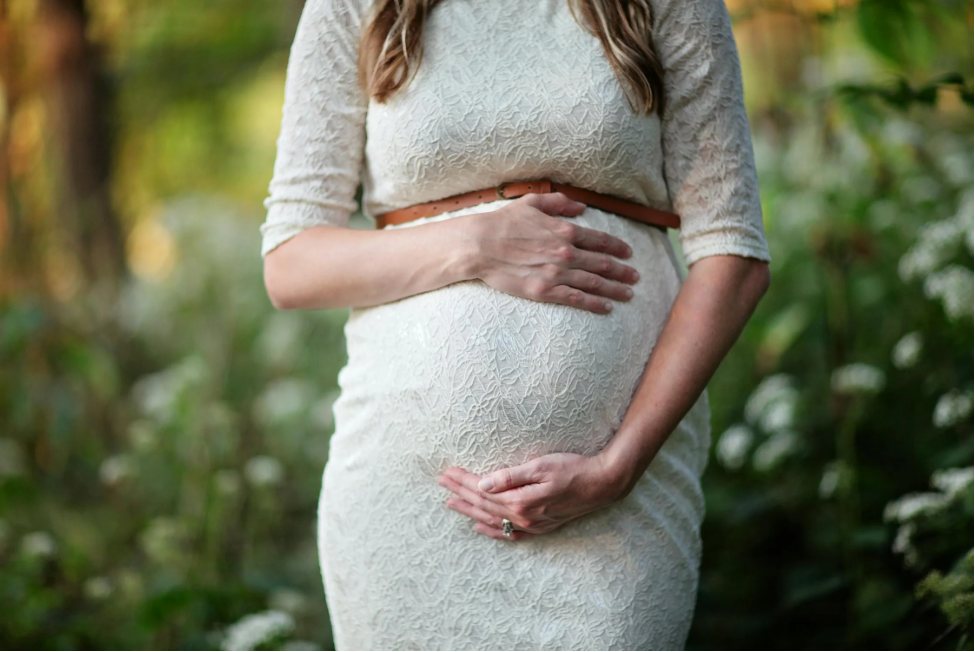
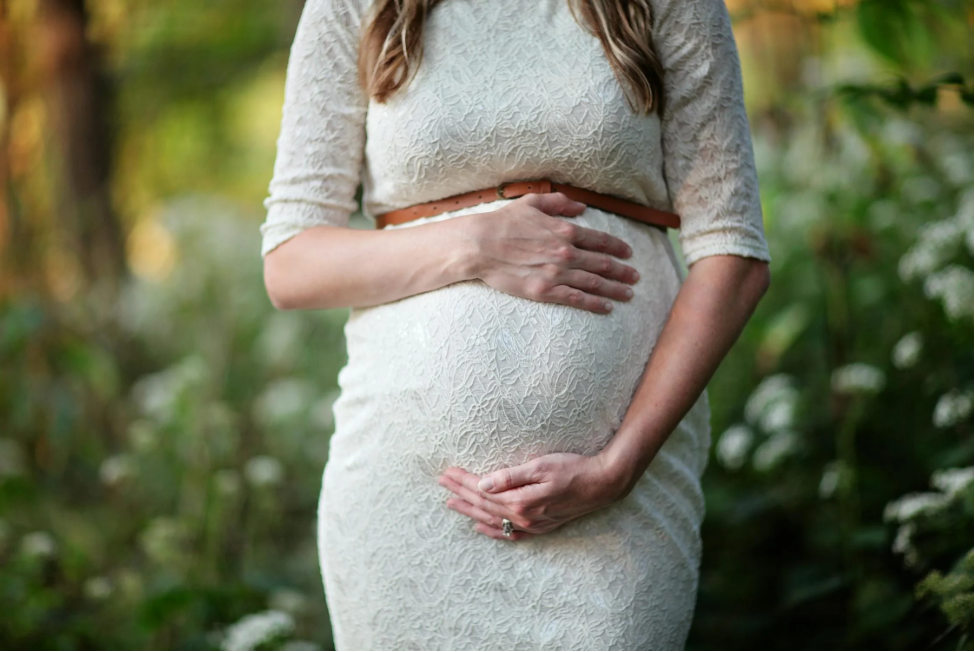
During pregnancy, it is possible to experience some bleeding. However generally it will not be because of a period.
A period is essentially the shedding of the uterine wall when there is no fertilisation taking place.
There could be other causes for bleeding or spotting during pregnancy. Some are no cause for concern, while others may require medical assistance.
Read this blog to better understand when and if you should seek medical advice for what you’re experiencing.
Can I get my period while on my period?
The short answer is no. When a person is pregnant, they do not ovulate. Menstruation occurs when the uterine lining is shed in the absence of fertilization.
However, some people may experience some form of bleeding during early pregnancy, but this is not linked to your menstrual cycle. If you are bleeding and are worried about what it might mean, read this article to learn more.
Spotting vs bleeding during pregnancy
Spotting is when you notice a few drops of blood here and there. Spotting during early pregnancy is usually not a cause for concern.
Bleeding refers to more flow of blood. You may want to contact your doctor to make sure everything is okay if you are experiencing bleeding during your pregnancy.
What are some causes of bleeding in early pregnancy?
1. Implantation bleeding: Mild bleeding is common in the first trimester when the embryo implantation is taking place in the uterus.
2. Hormonal changes: The extra hormones needed during pregnancy can sometimes cause some spotting or light bleeding.
3. Cervical changes: A person may experience some changes in their cervical cells which can make the cervix a lot more sensitive. Some light bleeding is common, especially during intercourse.
4. Ectopic pregnancy: An ectopic pregnancy is when the embryo settles anywhere other than the uterus. In most cases, the embryo settles in the fallopian tube, but it can also happen on the ovary, or in the abdominal cavity. This is a rare complication, but if left untreated it can be fatal.
5. Subchorionic hematoma: A subchorionic hematoma occurs when blood collects between the uterine wall and the amniotic sac. Vaginal bleeding is the most common symptom, however some may not show any symptoms. It usually goes away on its own without any complications but it’s best to consult a medical professional if you are experiencing bleeding.
6. Infection: Some Sexually Transmitted Diseases (STIS) or UTIs can cause some light bleeding. You should contact your doctor for antibiotics for these infections.
7. Miscarriage: A miscarriage occurs when there is a loss of pregnancy. Symptoms include light to heavy bleeding, and severe cramping.


Signs of a miscarriage include:
- Bleeding from the vagina with or without pain, including spotting
- Pain or cramping in the pelvic area or lower back
- Fluid or tissue passing from the vagina
- Fast heartbeat
If you notice any of these symptoms during you pregnancy, please consult a medical professional.
What are some causes of bleeding during late pregnancy?
Bleeding in the second or third trimester is less common, and could be a sign of something more serious. Some causes of bleeding later in your pregnancy are:
1. Pre term labour: Going into labour before 37 weeks is called preterm labour. Contractions, cramping and your water breaking are other symptoms you may experience.
2. Placenta previa: Placenta previa bleeding occurs when the placenta implants near the neck of the cervix, blocking the cervical opening.
3. Placental abruption: This is an uncommon yet serious complication of pregnancy. The placenta is responsible for providing nutrients and oxygen to the baby. During placental abruption, the placenta completely separates from the uterine wall, cutting off the baby’s supply of oxygen and nutrients. This can cause heavy bleeding in the mother.
4. Uterine rupture: When the uterus tears during labour. This condition is rare but is more likely to occur if a person has previously had a caesarean delivery or surgery on the uterus.
5. Bloody show: This is a term used to describe bleeding at the end of pregnancy when your body is preparing for labour. ‘Bloody show’ carries blood mixed with a little bit of mucus.
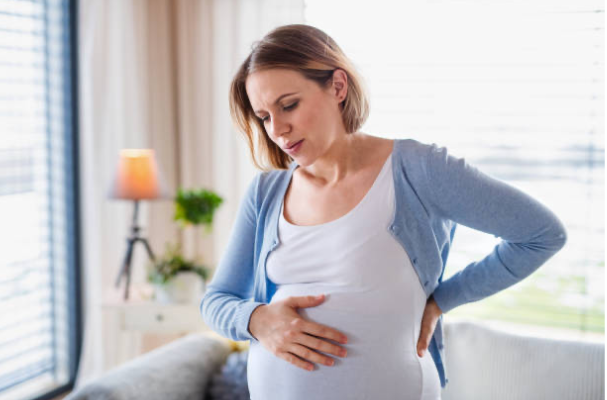
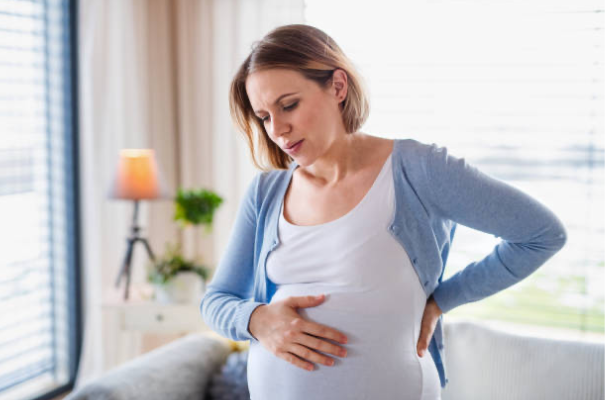
Is period-like bleeding during pregnancy normal?
Bleeding that resembles your period is not common during pregnancy. Heavy bleeding could mean there is an underlying complication so it’s important to stay on top of your gynaecologist check ups during pregnancy to ensure everything is going smoothly.
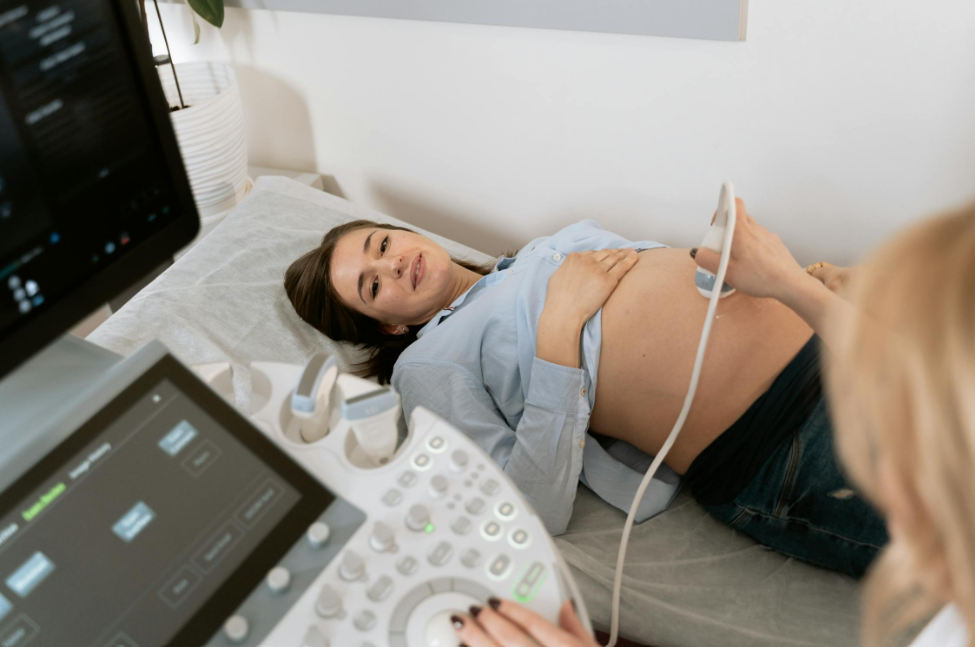
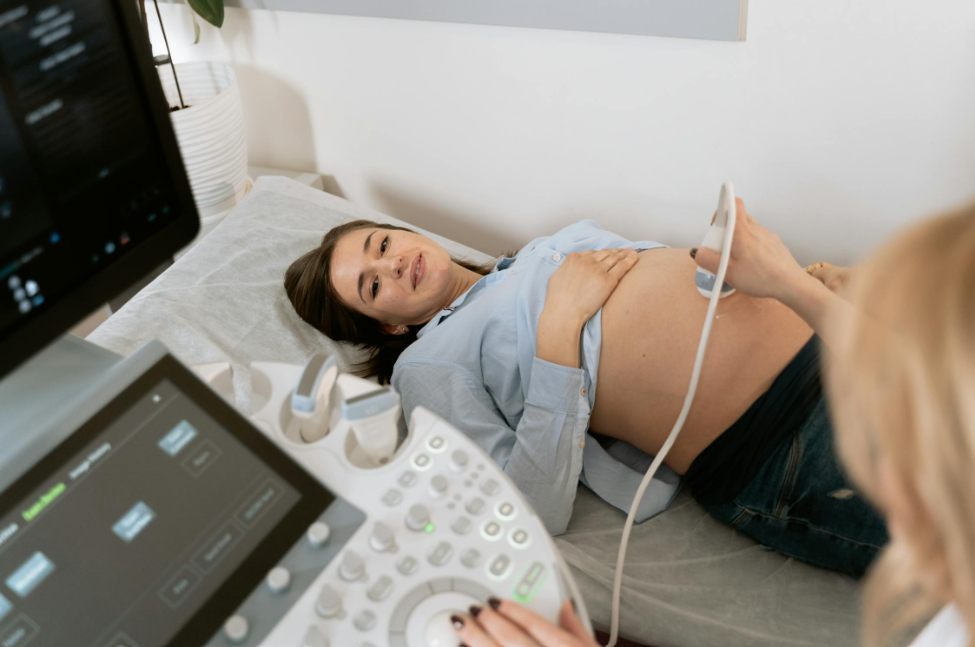
When should you go to your doctor?
You should always keep your doctor in the loop about anything out of the ordinary you experience during your pregnancy, including mild to heavy bleeding.
If you experience more serious symptoms you should definitely call your doctor right away.
Frequently asked questions
Can you have a period while pregnant?
No. Your period occurs when there is no fertilisation of the egg taking place. So by default being pregnant means that the egg has been fertilised and you will not be getting your period.
What causes bleeding during pregnancy?
Light spotting during early pregnancy is common, and can often be a result of hormonal changes your body is going through to prepare for pregnancy.
More serious conditions and complications like an ectopic pregnancy or a miscarriage can cause heavier bleeding and more severe symptoms. You should reach out to your doctor if you notice some unusual bleeding or symptoms.
Is spotting normal early pregnancy?
Bleeding or spotting in the first trimester is common. Between 15% and 25% of all pregnant women experience bleeding or spotting in the first 12 weeks of pregnancy. Even though it’s common, you should still call your doctor and keep them in the loop about your symptoms.
Use the Asan period tracker to stay in sync with your cycle
-

The App Store
Click to download -

Playstore
Click to download
More Posts
View all-
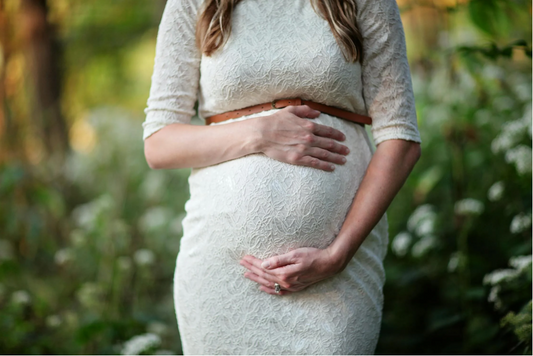
Can you get your period if you’re pregnant?
Many people wonder if you can still get your period while pregnant. The short answer is no, but light bleeding or spotting can happen for other reasons. This blog breaks...
Can you get your period if you’re pregnant?
Many people wonder if you can still get your period while pregnant. The short answer is no, but light bleeding or spotting can happen for other reasons. This blog breaks...
-

Top 5 features for period underwear
This guide breaks down the five most important features to look for including fabric, fit, and safety certifications, so you can find a pair that’s comfortable, leak-proof, and long-lasting.
Top 5 features for period underwear
This guide breaks down the five most important features to look for including fabric, fit, and safety certifications, so you can find a pair that’s comfortable, leak-proof, and long-lasting.
-
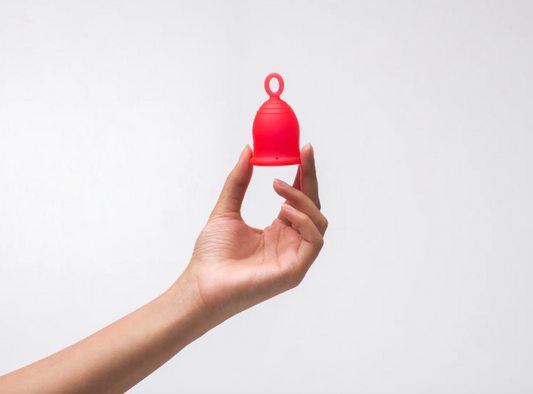
-

The hidden environmental cost of disposable period products
Understand the hidden environmental costs of single-use sanitary products.
The hidden environmental cost of disposable period products
Understand the hidden environmental costs of single-use sanitary products.






